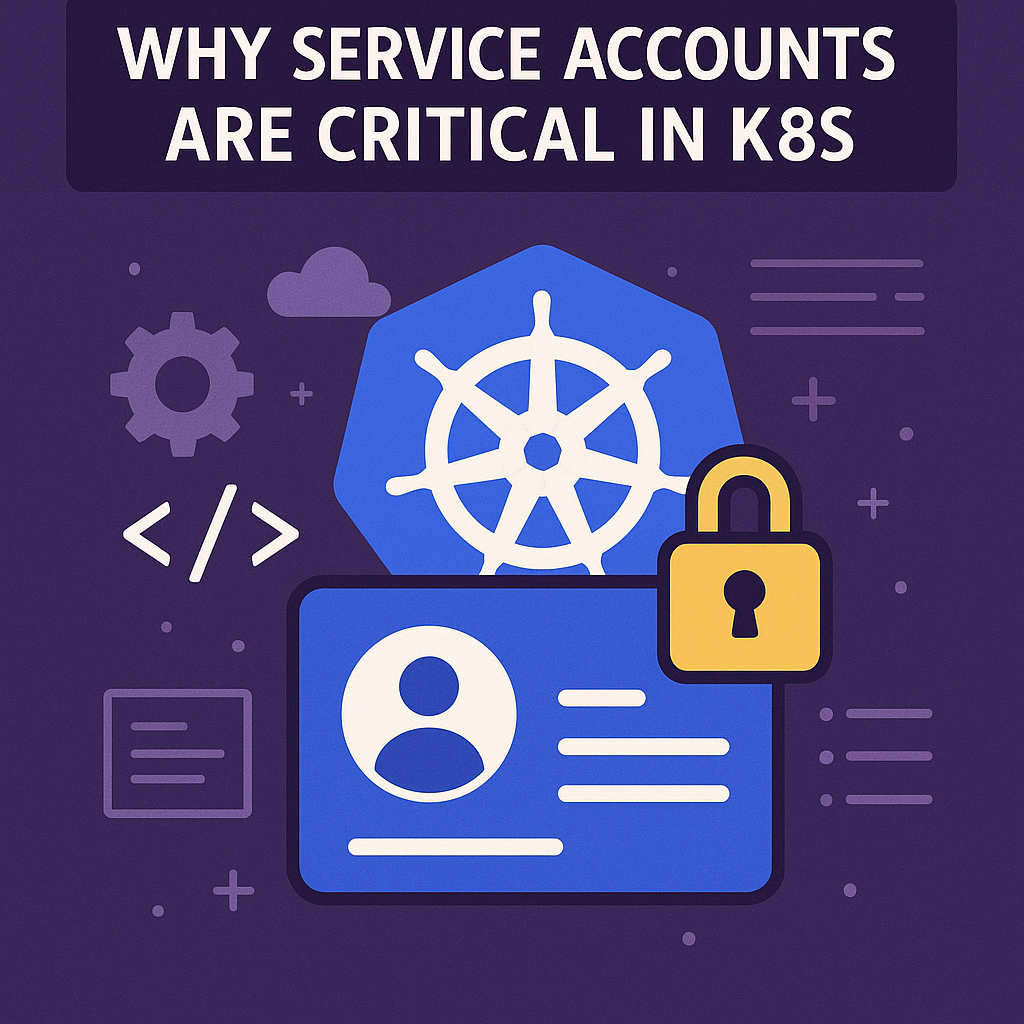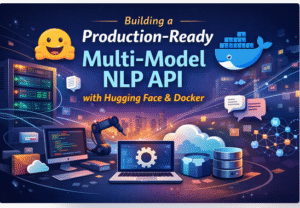🚀 K8s YSeries #3-Why service accounts are critical in k8s

Service accounts in Kubernetes serve several critical purposes for identity, security, and access control. Here’s why they’re essential:
Core Purpose: Pod Identity & Authentication
Service accounts provide identity to pods – they’re how Kubernetes knows “who” a pod is when it tries to access resources. Every pod runs with a service account, whether you specify one or not.
Key Use Cases:
1. Kubernetes API Access When pods need to interact with the Kubernetes API (like reading secrets, updating deployments, or watching for changes), they authenticate using their service account credentials:
# Pod using custom service account
apiVersion: v1
kind: Pod
spec:
serviceAccountName: api-reader
containers:
- name: app
image: my-app
2. RBAC (Role-Based Access Control) Service accounts are the foundation of Kubernetes permissions. You bind roles to service accounts to control what pods can do:
# Give service account permission to read pods
apiVersion: rbac.authorization.k8s.io/v1
kind: RoleBinding
metadata:
name: read-pods
subjects:
- kind: ServiceAccount
name: pod-reader
roleRef:
kind: Role
name: pod-reader
3. External System Authentication Service accounts can be linked to external identity systems:
- AWS: IRSA (IAM Roles for Service Accounts) for cloud resource access
- GCP: Workload Identity for Google Cloud services
- Azure: Azure AD Workload Identity
4. Secret Management Service accounts can be associated with specific secrets, controlling which pods can access sensitive data like API keys or certificates.
Security Benefits:
Principle of Least Privilege: Different workloads get only the permissions they need
# Database backup pod gets S3 access
# Web frontend gets no cloud permissions
# Monitoring pod gets read-only cluster access
Isolation: Prevents pods from accessing resources they shouldn’t have access to
Auditability: All actions can be traced back to specific service accounts
Default Behavior:
If you don’t specify a service account, pods use the default service account in their namespace, which typically has minimal permissions.
Real-World Example:
# Service account for a monitoring application
apiVersion: v1
kind: ServiceAccount
metadata:
name: prometheus
annotations:
eks.amazonaws.com/role-arn: arn:aws:iam::123456789:role/prometheus-role
---
# Pod using the service account
apiVersion: apps/v1
kind: Deployment
spec:
template:
spec:
serviceAccountName: prometheus # Uses specific identity
containers:
- name: prometheus
image: prometheus:latest
Bottom line: Service accounts are Kubernetes’ way of implementing “identity” for workloads, enabling secure, auditable, and fine-grained access control both within the cluster and to external systems.





